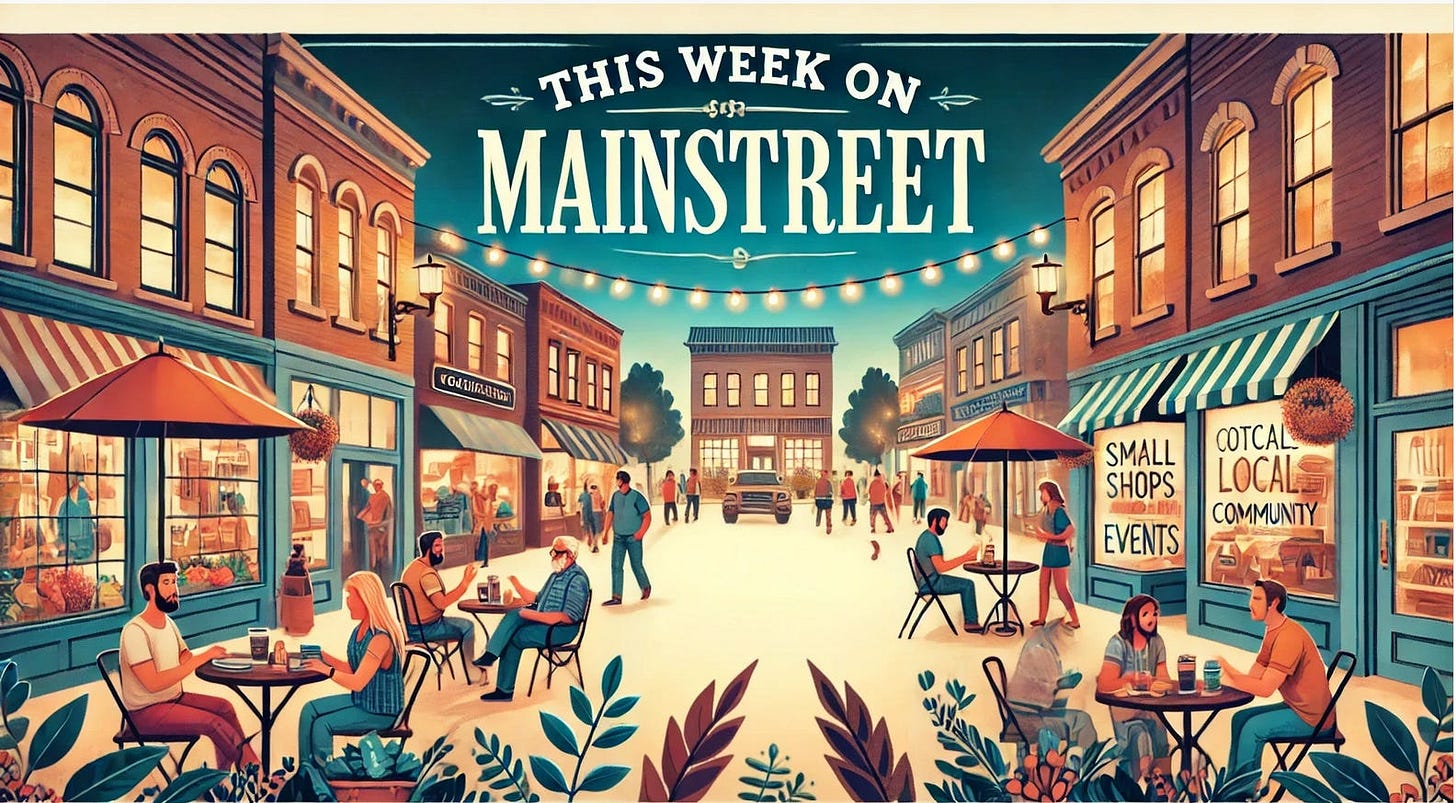MAINSTREET CHAMPIONS PT. 1
Growing up in the 90s in Cameroon, I never understood why my mother affectionately called my cousin Cassius Clay. My cousin was a high-spirited ball of energy, climbing chairs, breaking things, and exhausting everyone around her. It wasn't until I watched boxing with my uncle—a passionate fan—that I understood. He told me about Muhammad Ali, born Cassius Clay, who won against heavyweight champion Sonny Liston in 1964 despite being a massive underdog. Ali's speed and agility helped him overcome stronger opponents and punch above his proverbial weight. Small mainstreet businesses face similar challenges today. Competing against larger companies with bigger budgets, larger teams and more resources can feel like going up against a heavy weight champion.
AI will not kill small businesses; it is businesses that use AI that will kill businesses that don't. AI will be the catalyst that levels the playing field, amplifying the speed and agility of small businesses and helping them operate like companies many times their size. And one of the most immediate, high-impact ways to apply this speed and agility is in customer support.
Customer support in business success
No business can succeed without effective customer support. We’ve all had a bad experience that made us walk away or switch to a competitor on the spot. Businesses are aware of this. Engaging with customers in a timely and helpful manner doesn’t just drive trust for brands it helps drives sales. This is one of the key areas where small businesses, constrained by resources, struggle to compete — and where AI can help them punch above their weight. Historically, delivering high-quality, timely and consistently excellent customer engagement is expensive and difficult to scale — especially for businesses that don't have the budget to hire and train staff, making it a major bottleneck for growth.
Virtual front office (VFO)
This is where Virtual Front Offices (VFOs) come in. A VFO is an AI tool that serves as an intelligent single point of entry for customer interactions. It can answer customer inquiries, manage intake and close bookings, follow up with customers, and even manage customer relationship — all without requiring a business owner to hire more staff to scale. It’s like giving your business a superpower: the ability to offer exceptional, personalized customer service 24/7. I believe VFOs will become as ubiquitous as websites in the AI age—just as every business today has a social media presence, soon every small business will have a VFO.
Imagine a boutique travel agency that uses a VFO to handle customer interactions. When a potential client asks about safari options in Kenya, the VFO immediately responds with available packages and an inspirational itinerary to keep the customer engaged. If the customer shows interest, the VFO can take their booking or schedule a meeting with a human travel consultant for further customization. The agency owner, meanwhile, spends zero time on these admin tasks and can instead focus on curating exceptional experiences. This is a stark contrast to the current experience, where customers often wait hours or days for a response. During that time, they're likely reaching out to multiple competitors, and if they don't get timely feedback, they move on. For small agencies constrained by staffing, VFOs provide a crucial advantage: timely, engaging interactions that keep customers from slipping away.
In this new AIM series, Mainstreet Champions, we’ll break down exactly how small businesses can implement their own VFOs. The goal? To help small businesses harness AI to compete and win effectively as underdogs and become champions in their local community.
THIS WEEK ON MAINSTREET
📰Mainstreet Minute:
Colorado has become the first state in the US to pass a comprehensive law related to the development and deployment of artificial intelligence. Critics argue that this law might place undue burden on small businesses trying to deploy AI while supporters praise it for addressing safety and discrimination. This law goes into effect in 2026. It will be interesting to see if other states follow suit with similar laws.
📌Quick Win Tip:
Talo AI, is a real time translator for Zoom and Team calls. Watch this video demo, its scary good. Retaining the services of a translator can be expensive for small businesses. The fact that you can simply add a translator to a Zoom or Google meets call and have a natural conversation in real time in 32 languages is a game changer for small businesses that deal with vendors, suppliers or partners in different countries. Get a quick win this week and try Talo for free in your next meeting.
This is not a sponsored advertisement
💡Aim the Spotlight:
Meet Trozie, the owner of Art Lair Shave Parlor in Philadelphia. Trozie is no stranger to technology. His barbershop runs on fully contactless payments and automated bookings. But despite his tech-savvy operations, he spends more than 40% of his time on content generation.
He tried hiring an assistant, but the content lacked the creativity and authenticity he envisioned, so today he manages content creation himself. The real challenge isn't just creating the content—it's figuring out what to post, researching trends, writing captions, and then producing the material.
Trozie has considered hiring another assistant, but his goal is to automate this process. If he had an AI system that could analyze customer preferences, suggest relevant content ideas, generate high-quality visuals and captions, and even schedule posts at optimal times, he believes it would be a game-changer. With that burden off his shoulders, Trozie could focus on what he does best, helping his clients look good and feel good.




Such an exciting glimpse into the future of customer engagement for small businesses! I see a world in which VFOs level the playing field for a lot of businesses struggling to compete - can't wait to keep exploring the series